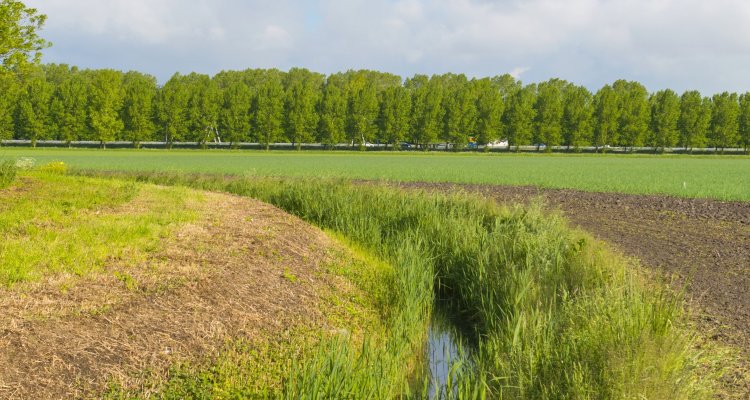
News
Inauguration Gerard Velthof: ‘Stop manure, nitrogen and climate policies working against each other’
As a farmer, how should you manage your soil in the labyrinth of environmental policy? Gerard Velthof will focus on this question in his inaugural lecture on Thursday 30 May 2024. He has been Special Professor of Soil Nutrient and Carbon Management at Wageningen University & Research since December last year.
Gerard Velthof studied soil science and soil fertility in the eighties and has spent a lot of his career at WUR. As an expert on soil, nutrients, emissions and leaching, he gathers scientific knowledge for government policies. Since 2000, he has also played this role in the Ministry of Agriculture, Nature and Food Quality’s Commissie van Deskundigen Meststoffenwet (Committee of Experts on the Fertilisers Act) (CDM). ‘My subject is remarkably current now that the derogation has to be phased out according to European legislation. However, the discussion about manure is not new: it has always been there.’
Amidst all the debates and social unrest in the agricultural sector, Velthof focusses on knowledge for the long term. As a professor in the Soil Biology chair group, he intends to continue and expand in-depth studies on soil in the coming years. These are not limited to manure: he will also focus on other environmental problems, such as global warming.
Preventing nitrous oxide emissions
The release of nitrous oxide from the soil is one topic that we still know too little about. Nitrous oxide (N2O) is a nitrogen compound that agricultural land releases, and it is a major greenhouse gas. ‘I want to know more about when it is released and how much is involved. You can then compare different conditions with a lot, little or no fertilisation, with animal manure or artificial fertiliser, and if it has rained a lot or been dry for a long time. It all makes a difference.’
The problem with nitrous oxide is that it can work against measures intended to combat global warming. This risk is present with peatlands, for example. Raising the groundwater level in peatlands is intended to counteract carbon dioxide emissions that result from the breakdown of desiccated peat. ‘However, wet peat actually releases nitrous oxide, a more powerful greenhouse gas than carbon dioxide,’ Velthof comments. ‘So, we want to measure and calculate the optimal groundwater level for combating global warming.’ Carbon storage in sand and clay soils also releases nitrous oxide. ‘For the climate, storing carbon in the soil seems like a good solution, but we need to know where the balance is between storage and emissions.’
Soil knowledge for future policy
Using new measurement techniques, Velthof will better map the processes of nitrogen, carbon and phosphorus compounds in soil and emissions into the air and water. This knowledge also ultimately helps to formulate policies that combat emissions and leaching. This will not make things easier for policy makers, but it will make matters more effective he hopes. ‘With more fundamental knowledge, we can prevent measures from working against each other. Injecting manure into the soil, for example, results in less ammonia but more nitrous oxide. You can take additional measures against that,’ he explains.
Velthof acknowledges that the environmental problems in agriculture are significant, especially the manure problem. ‘The manure surplus will be huge in two years. All kinds of technical solutions are conceivable, but they are not exactly quick to implement, and they only solve the problem partially. Livestock shrinkage is necessary to remain compliant with European law. This would be my advice, but it is ultimately for politicians to decide.’